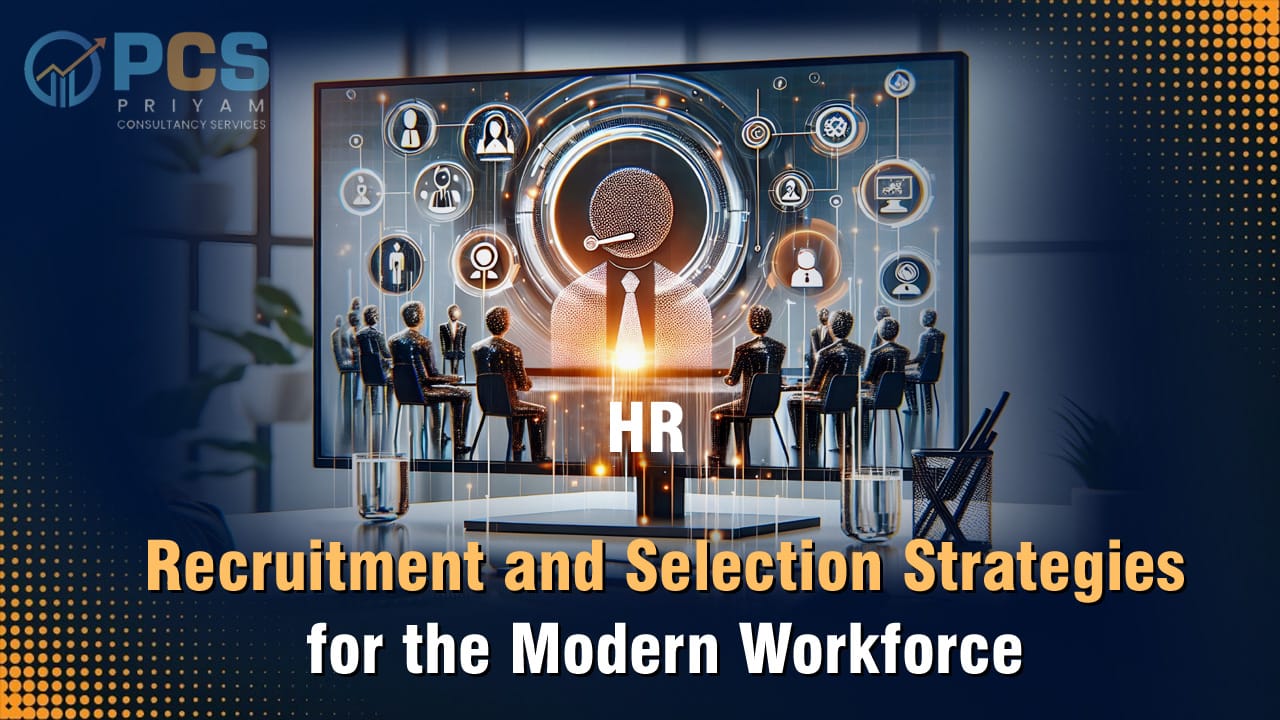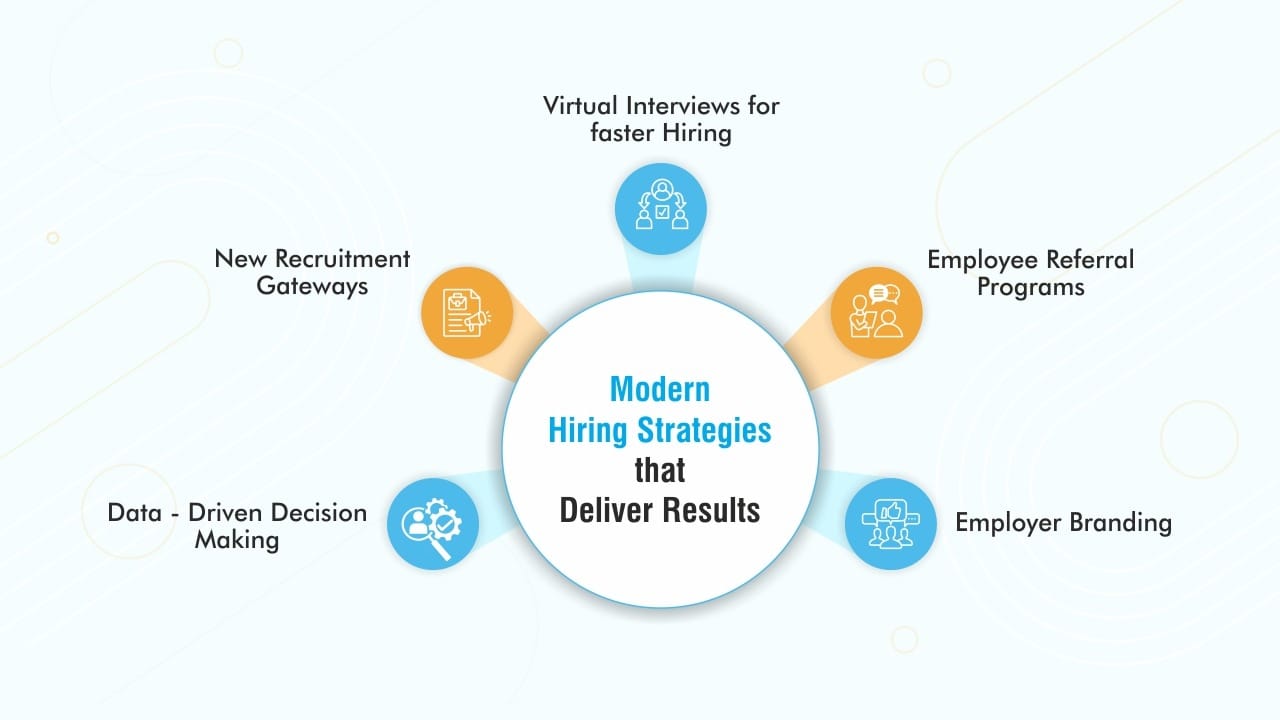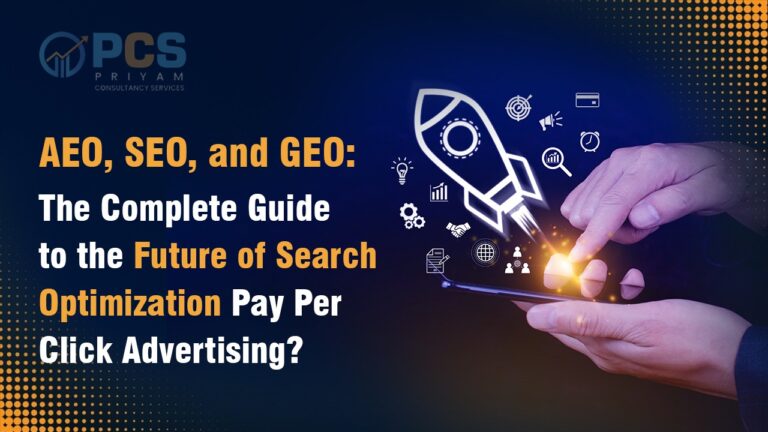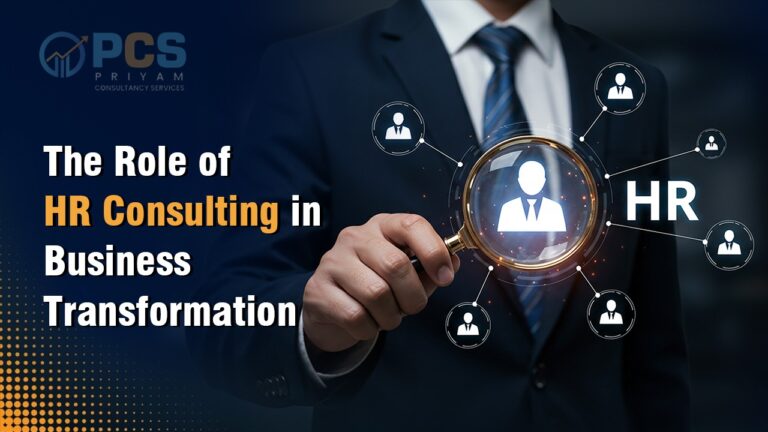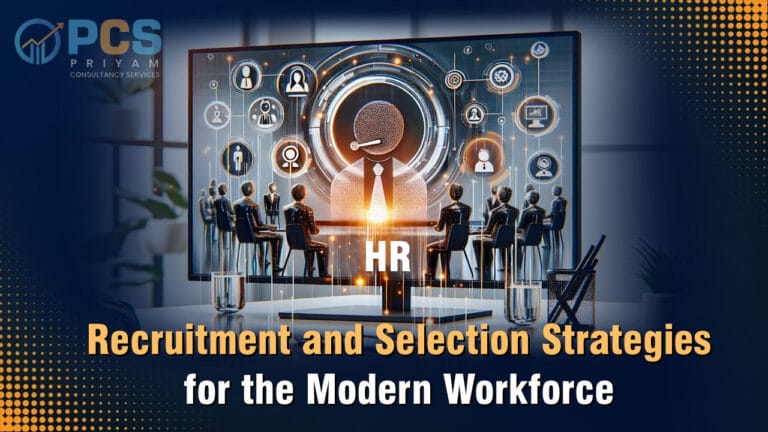In today’s competitive business world , attracting and retaining the best talent is a major challenge . To stay ahead , organizations must adopt the latest technologies in their recruitment and selection processes. By leveraging digital tools, data-driven insights, and contemporary hiring practices not only streamlines the recruitment journey but also ensures that companies can adapt quickly to the changing expectations of the modern workforce.
If you are looking for ways to enhance the recruitment process , you’re on the right platform . In this blog , we’ll explore effective strategies and modern approaches that can help organizations build a stronger, more future – ready workforce
Recruitment and selection are interconnected parts of the talent acquisition journey, but they serve distinct purposes. The recruitment and selection process begins with recruitment, which is the process of attracting potential candidates for a job opening. This can be done through job portals, social media platforms, employer branding initiatives, campus drives, pooled drives, and employee referrals. The goal is to generate interest , forming the foundation for the strong HR strategy and recruitment.
Social channels like LinkedIn, Instagram, and niche job boards act as powerful hiring gateways by expanding your reach to both active and passive candidates. Beyond job postings, they allow organizations to engage with potential talent, showcase company culture, and build strong employer branding. Thought leadership content, interactive engagement, and digital outreach increase visibility, strengthen credibility, and attract top talent. By integrating social platforms into recruitment, hiring becomes faster, more targeted, and strategically aligned with HR goals.
Use technology to do online interviews. Online interviews save your time and money. You can even meet people from far away. Virtual interviews help you talk to different people fast and easily. They make interviews flexible and work well. This leads to fast decision-making, and makes the recruitment process more efficient. With remote work as the new normal, organizations are adopting digital solutions like virtual job fairs, remote interview panels, and digital onboarding process to connect with global talent and make hiring process easier from start to finish.
Encourage employees to recommend talented professionals from their known network , which creates a trust regarding the employee .Referral programs not only improve the quality of hires but also boost employee engagement, retention, and cultural fit, since candidates referred by staff are often more aligned with company values.
Employer branding plays a central role in any recruitment and selection process. Showcasing your company’s culture, values, and growth opportunities builds a strong image that attracts top candidates. As part of comprehensive recruitment and selection, effective branding helps businesses stand out in competitive markets, making recruitment and selection more impactful.
Structured interviews are a critical recruitment and selection strategy that bring consistency, fairness, and transparency to the hiring process. Unlike unstructured interviews, where questions may vary between candidates, structured interviews follow a standardized format with predefined questions and clear evaluation criteria. This method reduces subjectivity and unconscious bias, ensuring that every candidate is assessed on the same parameters. By focusing on job-related competencies and measurable responses, structured interviews improve reliability, enhance decision-making, and help HR teams select candidates who are genuinely the best fit for the role.
Artificial intelligence is transforming recruitment by automating the initial stages of candidate selection. AI-driven tools can quickly scan resumes, analyze profiles, and match applicants against job requirements with greater accuracy than traditional methods. By leveraging natural language processing and machine learning, these systems identify relevant skills, predict candidate suitability, and even highlight red flags that may be overlooked in manual screening. This not only reduces repetitive tasks for HR teams but also shortens the hiring cycle, improves candidate quality, and ensures a more data-driven, objective approach to talent acquisition.
Behavioral assessments are a strategic tool in the recruitment and selection process, focusing on personality traits, teamwork, and communication styles. These HR selection strategies help predict cultural fit, improve employee retention, and reduce hiring mistakes. HR recruitment consultants often recommend this approach as part of effective recruitment and selection strategies.
Psychometric testing adds scientific accuracy to the recruitment and selection process by measuring aptitude, reasoning, and personality. Organizations can refine their strategies and make data-driven hiring decisions, ensuring smarter recruitment, stronger HR outcomes, and the creation of more capable teams. Modern HR tools and software, including HRMS systems, talent acquisition platforms, and AI-driven assessment tools, integrate psychometric assessments directly into the workflow, allowing HR teams and recruitment consultants to seamlessly administer, score, and analyze tests for faster, more objective, and technology-supported hiring decisions.
In today’s dynamic business environment, adopting modern recruitment and selection methods is no longer optional—it’s essential for long-term business success. Recruitment has evolved far beyond simply matching resumes to job descriptions. Today, it’s about building meaningful connections between employers and candidates, ensuring cultural alignment, and creating teams that are agile, innovative, and prepared for future challenges. Organizations that continue to rely solely on traditional hiring practices risk losing top talent to competitors who embrace advanced strategies.
By focusing on employer branding, leveraging data and analytics, and using technology like AI-powered screening and virtual interviews, companies can attract candidates who not only have the right skills but also share organizational values. At the same time, prioritizing diversity, equity, and inclusion brings varied perspectives, enhances creativity, and fosters a healthier workplace culture. Another vital element is the candidate experience—modern job seekers expect transparency, fairness, and timely communication. Businesses that deliver this strengthen their reputation, creating a cycle where candidates become long-term brand ambassadors.
The shift toward hybrid and remote work models further emphasizes the need for flexible, globally focused recruitment strategies. Digital tools such as virtual job fairs, remote interview panels, and digital onboarding now enable organizations to reach and integrate talent across geographies with ease. Ultimately, modern recruitment is about striking the right balance—using technology to improve efficiency while preserving the human touch to foster trust and connection. Companies that commit to agility, continuous improvement, and candidate-centric approaches will not only fill positions faster but also build resilient workforces that drive sustainable growth.
However, implementing these practices effectively requires expertise, precision, and the right HR guidance. This is where Priyam Consultancy Services (PCS) can make a difference. With deep experience in Human Resource Management and tailored HR solutions, PCS helps organizations design and execute smarter hiring frameworks aligned with their business goals.
